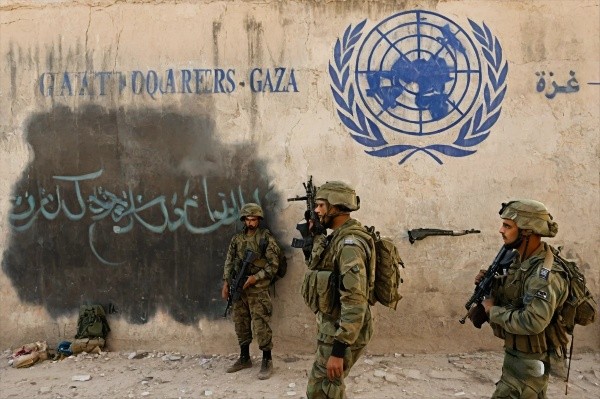Iran’s Plan to Strike Back Against the U.S.
Iran’s Military Preparations Following U.S. Attacks
Loading...

Mediators announce a ‘bridging proposal’ that would set the path for regional de-escalation and ending the war.
Mediators Present Bridging Proposal
In a significant development, the United States, Qatar, and Egypt have announced a "bridging proposal" aimed at swiftly implementing a ceasefire deal in Gaza. This proposal is designed to facilitate the end of hostilities and ensure the release of Israeli captives. The joint statement released on Friday emphasized that the ongoing negotiations in Doha have been "serious and constructive," reflecting a commitment to resolving the conflict that has caused immense suffering in the region.
The latest round of talks commenced on Thursday, coinciding with heightened tensions following the assassination of key figures, including a top Hezbollah commander in Beirut and Hamas's political chief, Ismail Haniyeh, in Tehran. The mediators have made it clear that there is no room for delays in finalizing the ceasefire agreement, which they believe is crucial for saving lives and alleviating the humanitarian crisis in Gaza.
Framework for Ceasefire and Hostage Release
While specific details of the bridging proposal remain undisclosed, it reportedly builds upon a framework presented by President Joe Biden in May. This US-backed plan outlines a multiphased approach to ending the conflict. The initial phase would involve a six-week pause in fighting, allowing for the release of some Israeli captives held in Gaza, alongside Palestinian prisoners in Israeli jails. The subsequent phases would aim for a permanent cessation of hostilities and the reconstruction of Gaza, which has suffered extensive damage due to the ongoing conflict.
The mediators' joint statement highlighted their commitment to continuing technical discussions in the coming days. These discussions will focus on the implementation of the agreements, humanitarian provisions, and the specifics regarding hostages and detainees. The urgency of these negotiations is underscored by the dire humanitarian situation in Gaza, where civilians have been caught in the crossfire.
Optimism Amidst Skepticism
President Biden expressed cautious optimism regarding the negotiations, stating that progress has been made, although a final agreement is not yet in place. He noted that the situation is "much, much closer" to a resolution than it was just a few days prior. Following his remarks, the White House confirmed that Biden held separate discussions with Qatari Emir Sheikh Tamim bin Hamad Al Thani and Egyptian President Abdel Fattah el-Sisi to review the advancements in the ceasefire talks.
However, skepticism remains, particularly from Hamas. A senior official from the group reiterated that any agreement must lead to a permanent ceasefire, the complete withdrawal of Israeli forces from Gaza, and a serious prisoner exchange. Hamas has accused Israel of complicating the negotiations by introducing additional conditions, which they believe could hinder progress.
Israel's Position and Regional Implications
On the Israeli side, there has been no clear articulation of a strategy to conclude the war. While some officials have expressed support for the proposed ceasefire, Prime Minister Benjamin Netanyahu has maintained that military operations will continue until Israel achieves "total victory." Reports indicate that Netanyahu is facing pressure from security advisors to accept the proposed deal and avoid imposing new demands that could derail the negotiations.
The Israeli Prime Minister's office has suggested that Hamas is obstructing the path to an agreement, emphasizing the need for the group to agree to terms for the release of hostages. Meanwhile, US officials have described the talks in Doha as having a "promising" start, with the potential to overcome remaining obstacles.
As the mediators continue their efforts, the Qatari Ministry of Foreign Affairs has reaffirmed its commitment to achieving a ceasefire in Gaza. However, analysts caution that while progress is being made, the implementation mechanisms still need to be established, indicating that a formal deal is not yet finalized. The situation remains fluid, and the coming days will be critical in determining the outcome of these negotiations.
BMM - MBA
Iran’s Military Preparations Following U.S. Attacks
Troops remain in five strategic locations, raising fears of renewed tensions and long-term occupation.
Opposition forces have taken control of the capital after a significant offensive. Here is how it unravelled.
